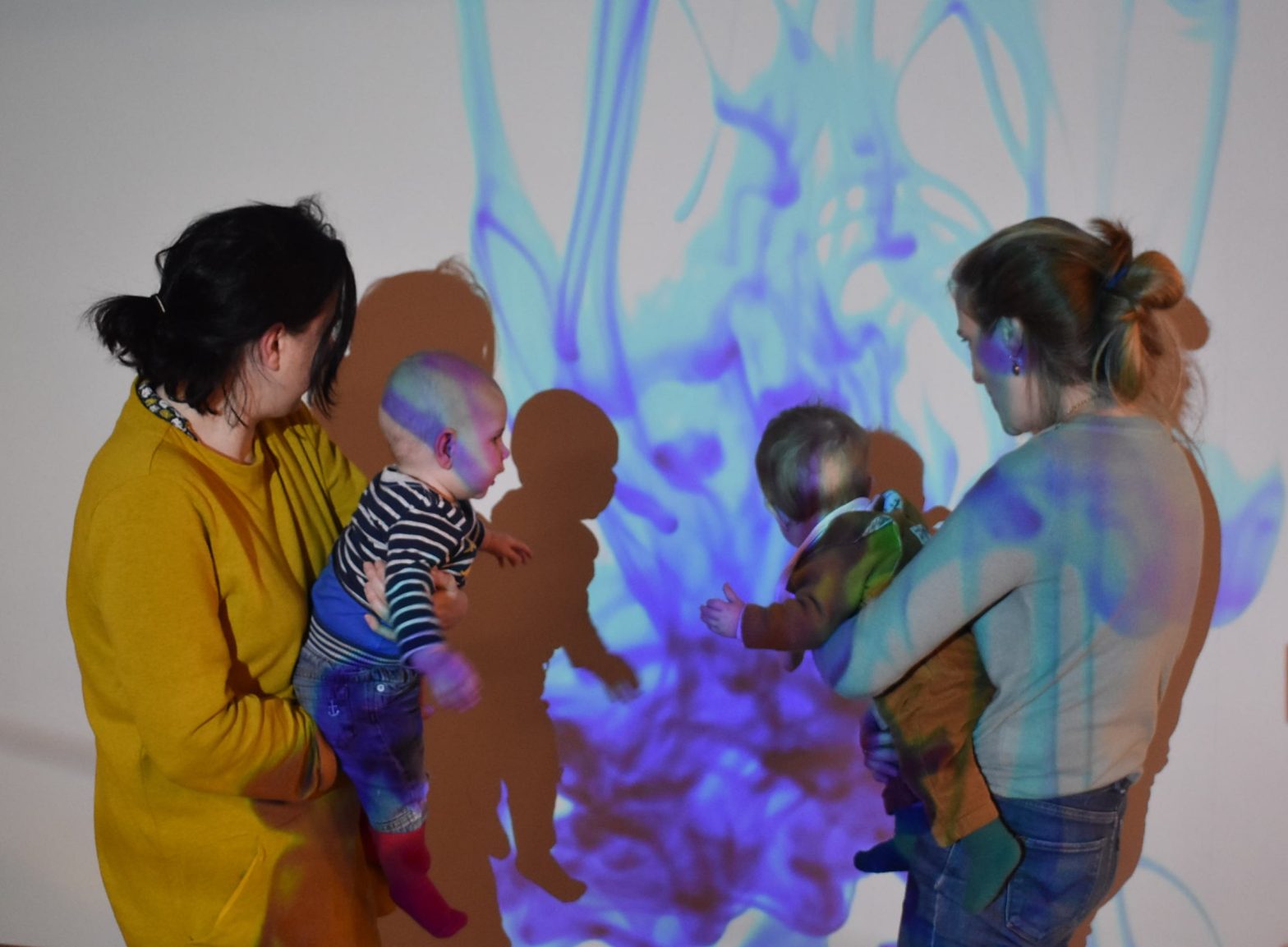ed by the Creative Learning team, Modern Art Oxford’s hugely popular Make Play sessions offer early years visitors a colourful and sensory encounter with art. Designed for children aged 6 months to 5 years with their parent or carer, each season takes inspiration from the main exhibition, facilitating discovery, exchange and creativity in a safe and welcoming space.
In this post, Creative Learning Assistant Bethany Mitchell shares her experience of devising and leading Make Play, reflecting on the impact and significance of early art experiences, and the important role of ‘play’ within an arts organisation’s creative programming.
–
It is a great joy and constant wonder to me that it is possible to create worlds within a world.
That material and space can be united with care to shape experiences and encounters, and with the addition of considered facilitation we can further embrace such spaces as true sites of exchange, growth and discovery between people. For me, it is play that makes these worlds go round, and play which is therefore integral to the approach of our newly launched early years sessions Make Play, which I delight in devising, delivering and sharing with our participants.
For the duration of our Make Play sessions the Modern Art Oxford basement is occupied and transformed into a world of play, a landscape of activity and a community of curiosity. Coloured papers and fabrics map out islands of inquiry, transforming the surface of the floor into a plain of possibility. Our terrain is far from flat. It undulates with open ended and sensory materials, objects and ephemera which are placed, hung and piled high, always with great care to prompt the navigation and discovery of each parent/carer and child on their shared journeys.
Through carefully curating these spaces I acknowledge the role of the environment in enabling, inviting and igniting experiences and the role of open-ended materials in creating possibilities rather than prescriptions. In this sense, parallels can be drawn to both the Montessori and Reggio Emilia approaches towards early childhood learning which centre on recognising and supporting the autonomy, agency and creativity of every individual.
It is only, however, with the curiosity and questioning of adult and child alike that these spaces, our small worlds, can become fully activated. The energy, laughter and chatter that emerge during each session seems testament to the authenticity of our self led, co-learning approach which respects all as capable, curious, co-creators and celebrates play as an innately human endeavour which can be at its richest when it occurs inter-generationally.
Taking inspiration from each exhibition in the galleries upstairs, every session’s exact content is different from the last and responds in some way to the processes, mediums, lives and philosophies of our exhibiting artists, always observed through the lens of play. Together we build, balance, mix, mould, connect, collect, pour, stir, press, cut, join, colour, move, blow, squeeze, light, shake, look, spray, twist, bend and fold in our playful plight to look, think and know differently.
Inevitably, in such a dynamic space items and ideas cross-pollinate collide to further fuel the inquiry of each small, shared journey. Outcomes are not predetermined, materials leave space for interpretation and private narratives, and art skills and creative confidence are not necessary. Our world is one where we may find a cardboard box house, a sea of green rice, torch-lit bottles of inks and oils, mounds of dough and sprinklings of coloured pigment, trees of broccoli and a sky of projection. Participants all move at their own pace, exploring as they wish and leaving whatever mark they choose, the sessions offer space to connect, to expand and to grow, but also to simply be.
As each session comes to a close we can’t help but notice that we never finish where we started and there is always something more to do, try and learn. Everyone starts to wonder what next week and its new small world will hold in store for us. For me as practitioner, I am enthused to see how our offer and philosophy may unfold to develop, connect and inform the wider Modern Art Oxford programme, building far reaching connections with our communities and the families that form them.
Words by Bethany Mitchell, Creative Learning Assistant
